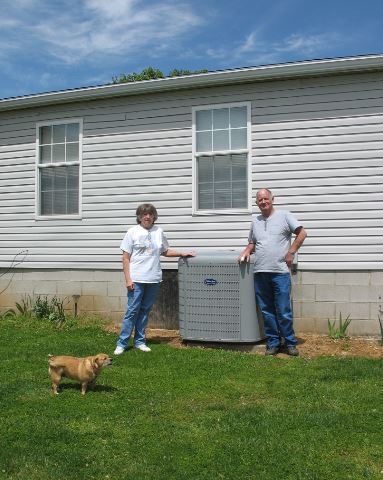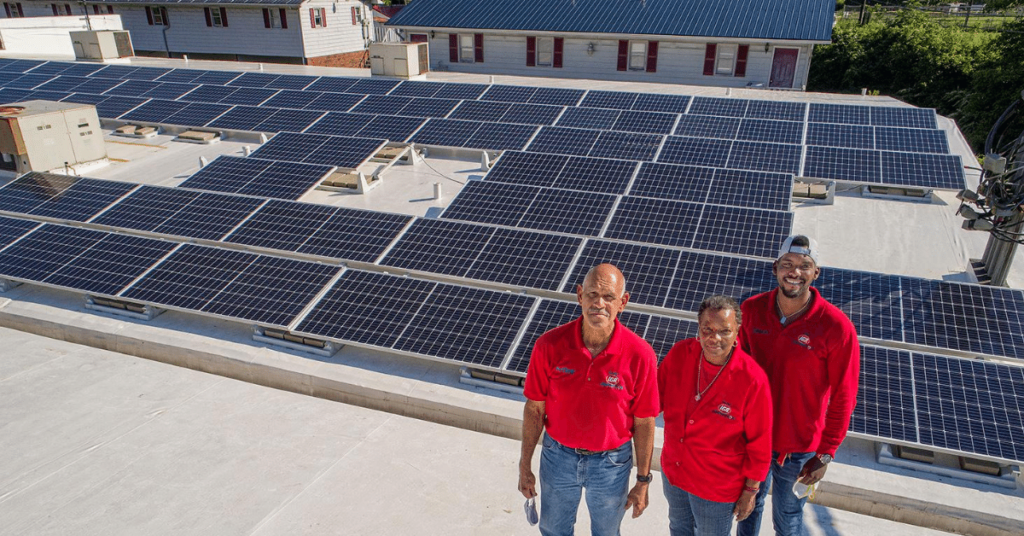Op-ed by the Mountain Association’s Josh Bills, published in Hazard Herald, Carter County Post and the Lexington Herald Leader.
While many Eastern Kentuckians have been busy balancing jobs, struggling businesses, and teaching their kids at home, Kentucky Power has been quietly filing a new rate proposal case in Frankfort that will raise electric rates in 20 counties. The proposed increase, as much as 25 percent, would be a financial burden on households, organizations and businesses already facing a huge energy cost burden in the middle of this pandemic. Their proposal also includes disincentives for much-needed energy efficiency upgrades that would save home and business owners money.

That’s why the Mountain Association, Kentuckians For The Commonwealth and the Kentucky Solar Energy Society, represented by Tom FitzGerald with the Kentucky Resources Council, are jointly intervening in this rate case through formal proceedings. We filed to intervene in this case before the Kentucky Public Service Commission (PSC) so we can advocate for reasonable rates and fair solar net metering policies.
Every year the PSC receives around 500 applications from utility companies for changes to rates and services. Nearly 85 percent of these cases go completely unchallenged. Our status as an intervenor allows us to contribute to the rate-making scrutiny process with testimony, discovery and cross-examination.
As an employee of the Mountain Association, I have worked with hundreds of businesses, nonprofits, public agencies and homeowners to help them save thousands of dollars in energy costs. Because Kentucky Power serves all or part of 20 Eastern Kentucky counties, many of the people we’ve helped have been Kentucky Power customers.
Take Isom IGA in Letcher County, for example. We have worked with the owner, Gwen Christon, to provide expertise and guidance as she invested in energy efficiency. Her electric bills have gone down from more than $122,000 to less than $82,000 per year, despite Kentucky Power increasing rates by more than 30 percent in recent years.

This summer, Christon installed a new solar electric system that will bring even more savings to her essential store. Margins are incredibly tight in the grocery industry, so these savings have allowed her to hire more employees, stock a variety of local produce and healthy items, and most importantly, stay open in a community that wouldn’t have a grocery store otherwise.
Without our organizations intervening in this new rate case, the PSC may never hear from customers like Gwen. Over the next several weeks, we will provide information and testimony about several aspects of Kentucky Power’s proposed rate adjustment and other regulatory proposals. We are calling for transparency in billing, and we are asking that Kentucky Power not be allowed to impose a confusing and harmful solar net metering policy.
Distributed solar, like what Isom IGA is installing, needs to remain a viable option for struggling businesses and non-profits because it will save them money, and help usher in a new sector of energy jobs in Eastern Kentucky.
Under the current policy, net metering allows for a one-to-one credit on electric bills for energy produced from a small-scale solar energy system. Under Kentucky Power’s new proposal, they would remove the one-for-one credit, making it nearly impossible to pay off an investment in solar in a timely manner.
The simple truth is that solar and other renewable energy projects are good for our state. We see for-profits and non-profits reduce operating expenses and level out seasonal electric bills through solar every day. We see monthly cost for investments in solar exceeded by monthly bill savings. Planning, building and maintaining these systems requires highly-skilled, good-paying jobs — jobs that Eastern Kentuckians desperately need.
The PSC has an obligation to establish rates that are fair, just and reasonable to all ratepayers. Our organizations intend to help the PSC hold Kentucky Power accountable to those standards.
It is vital that everyone else make their voices heard, too. To learn more visit www.kftc.org/kentuckypower2020. To file public comments with the PSC, email psc.info@ky.gov, including the case number (2020-00174) in the subject line, and your full name and county where you live in the body. You can also mail comments to Public Service Commission, 211 Sower Boulevard, Post Office Box 615, Frankfort, Kentucky, 40602. Comments, although accepted at any time, should be sent prior to the hearing scheduled for November 17-19, 2020.
Josh Bills is the Commercial Energy Specialist at the Mountain Association. He can be reached via email at josh@mtassociation.org.





